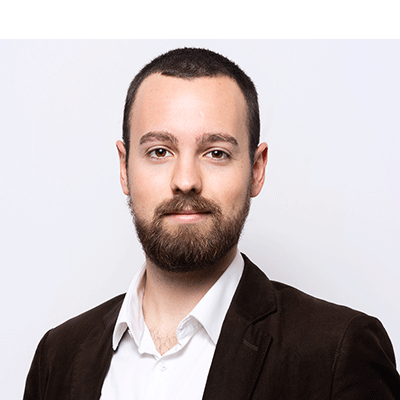- Research,
Guillaume ROUSSON, PhD student in Human Resources
Magellan research center- iaelyon since September 2022
Published on February 24, 2023 – Updated on February 24, 2023
Theme: “Managing intangibles in Healthcare: testing a method including the voice of users into the performance assessment of health organizations.”

Guillaume ROUSSON, PhD student in Management, Lyon University, Jean Moulin Lyon 3 University, iaelyon School of Management, Magellan research center, Chair “Values of care”
To complete his initial training as a physiotherapist, Guillaume Rousson, decided to complete a Master’s degree in Social issues and Health Policies at the University Jean-Monnet St Etienne to understand the system where he is working as a health professional. He found out that many transformations are deeply changing the management of health organizations, especially the recognition of speaking and knowledge of patients, that are relevant to evaluate and personalize the care provided.
Simultaneously with his medical practice, he started his entrepreneurial activity in this field. He co-funded a start-up called EntendsMoi with two expert patients, one pharmacist-entrepreneur and one engineer. Their objective is to help health institutions to adapt their methods thanks to a better consideration of the patient’s voice, via an artificial Intelligence platform.
To complete his initial training as a physiotherapist, Guillaume Rousson, decided to complete a Master’s degree in Social issues and Health Policies at the University Jean-Monnet St Etienne to understand the system where he is working as a health professional. He found out that many transformations are deeply changing the management of health organizations, especially the recognition of speaking and knowledge of patients, that are relevant to evaluate and personalize the care provided.
Simultaneously with his medical practice, he started his entrepreneurial activity in this field. He co-funded a start-up called EntendsMoi with two expert patients, one pharmacist-entrepreneur and one engineer. Their objective is to help health institutions to adapt their methods thanks to a better consideration of the patient’s voice, via an artificial Intelligence platform.
He benefits from a doctoral contract and is affiliated to the Magellan Research Center – iaelyon and to the Chair “values of care”. He is undertaking his PhD under the supervision of Didier Vinot.
The aim of his research project is to question the benefits and limits of this new approach of the appropriation of the patient’s experience and its transformation into indicators by Automatic Language Processing (ALP), in order to help healthcare organizations, manage the so-called “intangible” resources, including the healthcare relationship. This work aims to understand to what extent this approach could meet the need to standardize measures that patients have reported, necessary to compare structures while integrating the “singularity” of each clinical situation to enable the personalization of care.The Human Ressource Group
Last updated: February 24, 2023
